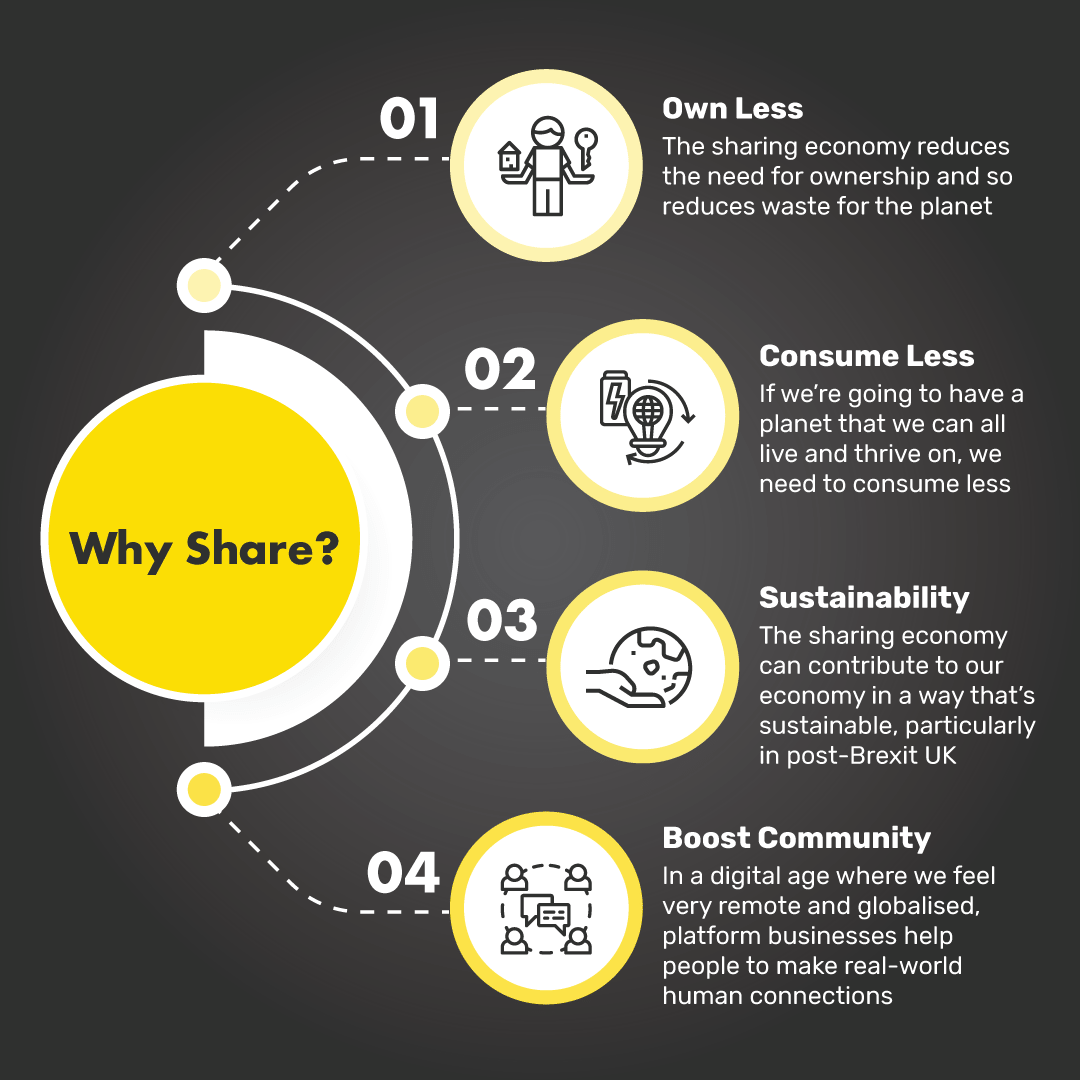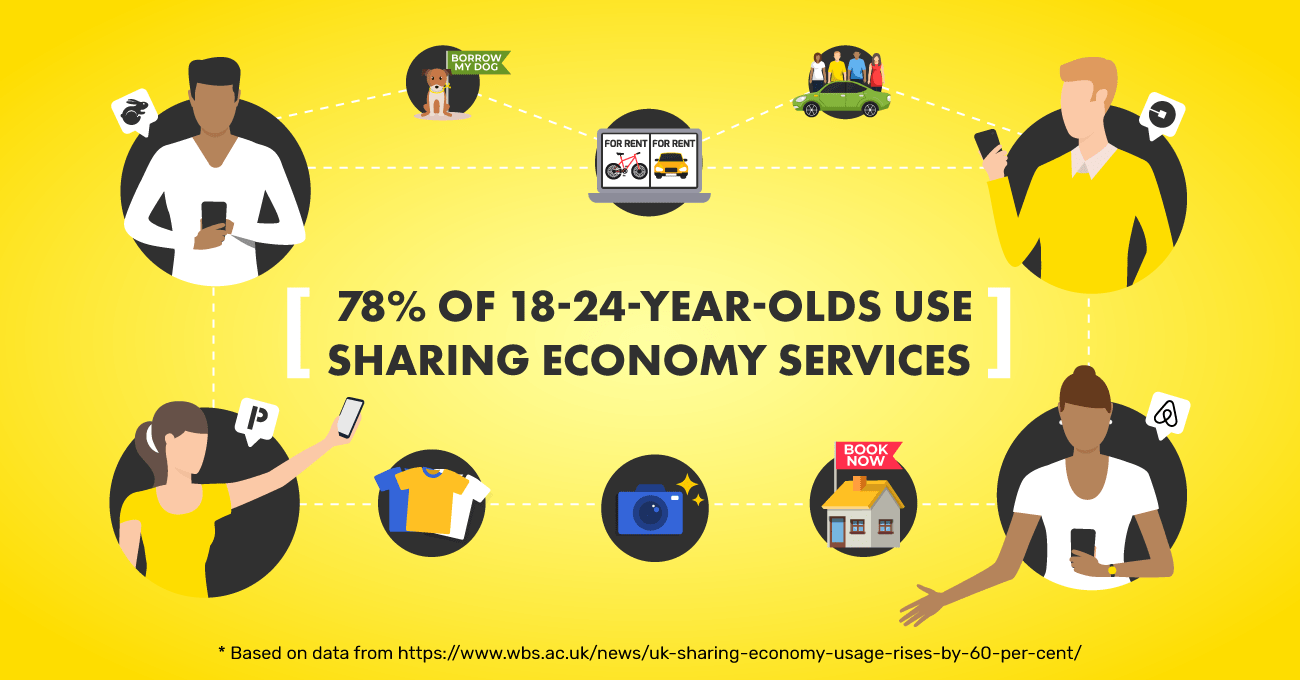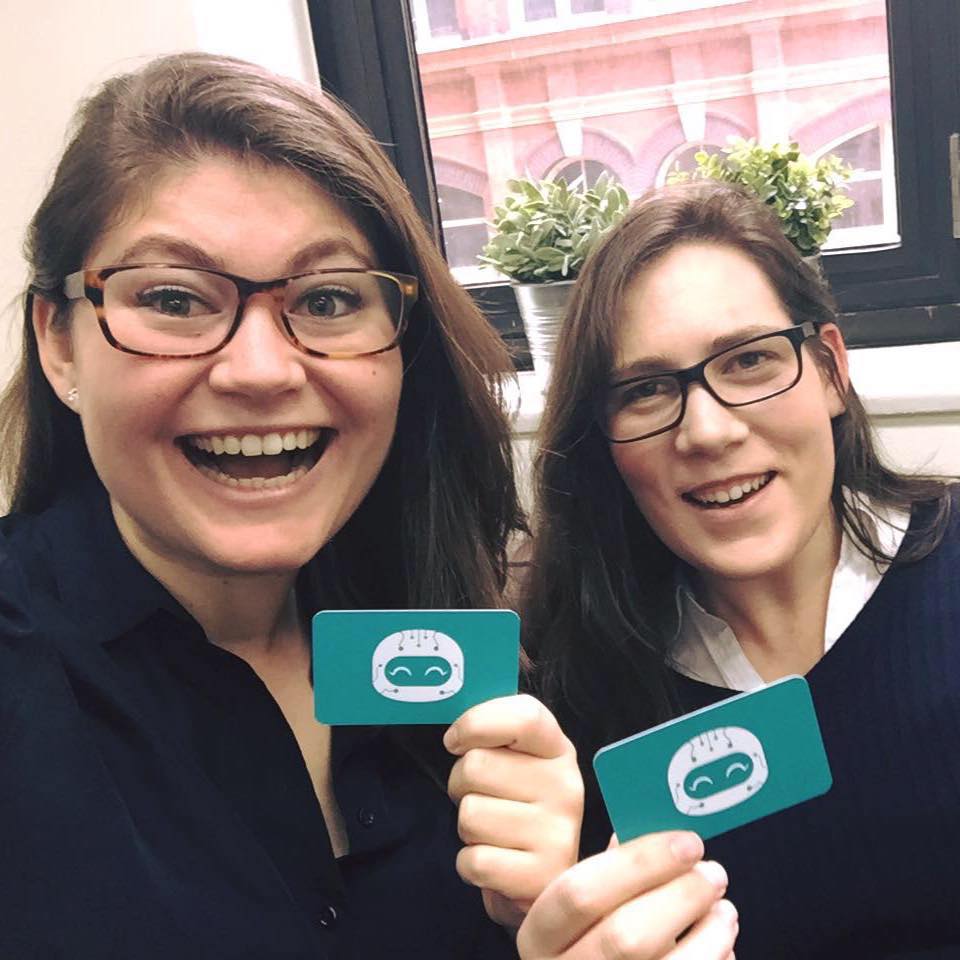An Interview With SEUK
Dec 4, 2019, by Gemma Doswell

SEUK
Sharing Economy
Interview
We caught up with Olivia Knight, Chair of SEUK and Founder of Patchwork. Here’s what she had to say.
Could you give me a brief introduction to you?
I’m Olivia, I’m the chair of SEUK and have been since March 2019. I joined as a member two years ago before being elected to the board and then this year being elected as chair. I was appointed because I’m also the Founder of Patchwork, a sharing economy business.
What is SEUK?
SEUK is a trade body. We represent the sharing economy - UK platform businesses that enable people to trade their space, skills or their stuff. We have 32 members who range from startups to scale-ups to larger corporations.
As a trade body, we’re quite unique. By representing platform businesses, we have a dual audience. For our own business to survive, thrive and prosper, we must represent both the interests of our sharing economy business members andthose of the people who use their platforms. And it’s a fast-growing industry - a 2018 survey found that 78% of 18-24-year-olds used sharing economy services.

What are the aims of the SEUK?
We exist to celebrate the common sense benefits of sharing. These include sharing resources and collaborating across platform businesses; enabling people to generate revenuefor themselves as individuals or as businesses within the sharing economy; reducing the need forownership and so reducing waste for the planet. We represent a whole range of different productsand services so it’s very difficult to define our members according to a particular vertical. Instead, we define their common principles around empowering people to utilise resources and to reduce waste.
Are there any difficulties faced in the sharing economy that the SEUK hopes to resolve?
A lot of the work that we’re doing in this coming year is around productivity. This iskey for the UK economy and also for the Confederation of British Industry (CBI). The SEUK is enabling individuals and companies to be flexible and productive whilst still promoting both workers’ rights and the environment.
Another challenge is ensuring that people understand the distinction between the sharing economy and gig economy businesses. The gig economy is a labour model whilst the sharing economy is a business model. We represent some gig economy businesses that operate within the sharing economy but not all sharing economy businesses use gig economy labour. Media reporting often leads people to think they are one and the same thing and this can be a challenge for us.
Trust is another major factor: making sure that people have trust in the sharing economy. We’re seeing more and more that whilst people and consumers are quite mistrustful of global corporations, they’re putting increasing trust into each other. It’s surprising to think that people will go and stay in a stranger’s house for a weekend, lend a stranger their car, rent out their wedding dress etc. so we have to make sure that the platforms enabling people to do this aretrusted. We do this in two ways: with our trust seal and with our guidelines that members sign up to.
The trust seal - We have to make sure that all of the security elements, the legalelements, the insurance, the safety and the payments are secure and safe - and our trust seal process is a really good way to ensure this.
SEUK guidelines - SEUK has a set of principles and guidelines in practice that members have to sign up to. We define ourselves not just as what we stand for but also by what we’re against.
The final challenge is being able to develop profitable businesses. For us, sharing economy businesses are just naturally well-positioned to do that.

What do you think has enhanced trust in the sharing economy?
Part of it is atrend of global tech enabling us to become hyper-localised. There’s a sense of trust in your local communities that global platforms can offer e.g. using a global platform like Gumtree to buy something locally. I also think that there’s a lot that tech can do e.g. on platforms like Paybasethat enable people to feel secure about payments.
We also feel a lot that the value of the sharing economy is not just that people get a cheaper stay with Airbnb or a better bargain on Depop or eBay, but they feel value in connecting with someone. In a digital age where we feel very remote, people want to make real-world human connections and platform businesses enable us to do that.
Do you have any specific aims while you’re in the post?
Well,whilst people are excited by this new, disruptive sector, I want to communicate that it’s the oldest economy in the world. Before we had money, the whole world traded and swapped and bartered and shared. Technology has just enabled platform businesses to make that easier, more safe, more secure, more efficient and more fun for people. The first job for us is, therefore, to encourage people to embrace it.
Our key campaigns this year are about sustainability, community and productivity. If we’re going to have a planet that we can all live and thrive on, we are goingto need to consume less and have less of an obsession with ownership. Sharing is crucial for ourfuture survival and it’s integral to our history. There’s a huge amount that the sharing economycan contribute to our economy particularly in post-Brexit UK. We’re living in a country that feels very, very divided and sharing economy platforms are one way to open doors, to connect people and to thereby support communities on and offline.
And finally, we’d love to hear about Patchwork. How does it work?
Sure! Patchwork is a sharing economy business that lets friends come together to contribute towards one big gift or an experience. You can use the site to fund group gifts for any occasion from birthdays to new babies and Bar Mitzvahs. You can also ask people to contribute time and skills to help organise events from DIY weddings to Christmas parties or hen dos. It’s a super-flexible platform that enables people to collectively fund, make and do stuff to help make something amazing happen. Like magic really. We quite literally helpmake people’s dreams come true!
Check out Patchwork here and don’t forget, to stay up to date with the latest news and events from Paybase, scroll down tosign up to our mailing list.


